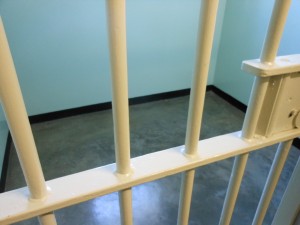The “school to prison pipeline” has become a popular phrase lately, but it isn’t just a hot tagline devoid of meaning. Kids who are criminalized at a young age are far more likely to be a fixture in the criminal justice system when they get older. This “pipeline” from school to prison is no more apparent than in Dallas Public Schools, where the Dallas County truancy courts prosecuted 36,000 cases last year alone. It’s this practice—of cuffing, prosecuting, and fining kids at an alarming rate—that has Dallas facing a potential civil rights lawsuit.
 Truancy charges are largely misdemeanors, but they are considered crimes no less. This means juveniles are given a criminal record at as young as 12 years, according to the Washington Post. Recently, three public interest law groups filed an official civil rights complaint with the Justice Department, alleging that the children have been denied their constitutional rights in the truancy court practices.
Truancy charges are largely misdemeanors, but they are considered crimes no less. This means juveniles are given a criminal record at as young as 12 years, according to the Washington Post. Recently, three public interest law groups filed an official civil rights complaint with the Justice Department, alleging that the children have been denied their constitutional rights in the truancy court practices.
Texas is seen as the toughest state on trouble-students and in Texas, Dallas is the toughest city. Every single year, 113,000 students between the ages of 12 and 17 are sent to court for truancy violations. Typically they are cited (told to appear), but increasingly, officers are visiting the students at home and in classrooms and walking them out in cuffs.
“I think you’d be hard pressed to find more punitive truancy practices,” said Deborah Fowler of Texas Appleseed. Fowler, and others, say that truancy courts should be a last option for kids, not a first.
While school officials say the truancy programs work and are a last resort, others see the system differently.
According to the Washington Post:
Lawyers involved in the complaint said they were astonished by what they found in adult courts in the Dallas area: students in handcuffs led before judges for missing school and others arrested in the courtroom amid violations of court orders. Many were threatened with jail time. Some are left with criminal records, they said.
The civil rights complaint alleges that the truancy court practices amount to a constitutional violation against the protection from cruel and unusual punishments. They also allege that the system is particularly harsh towards students with disabilities and those for whom English is not a first language.
While it isn’t clear what sort of short- and long-term effects the complaint will have, one thing is certain—the nation is getting a glimpse into how our state treats kids who may need a bit of direction.
If your child is charged in the juvenile courts, we might be able to help. Contact our office today to discuss your options within the Texas juvenile justice system.








Children who are at Jail, we should have sympathy for them. Before that we should correct those errors in our society which are leading these kids into crime. Mostly these kids gets inspired by movies with great violence. This is what I have observed.
___________________________________
criminaldefenselawdallas